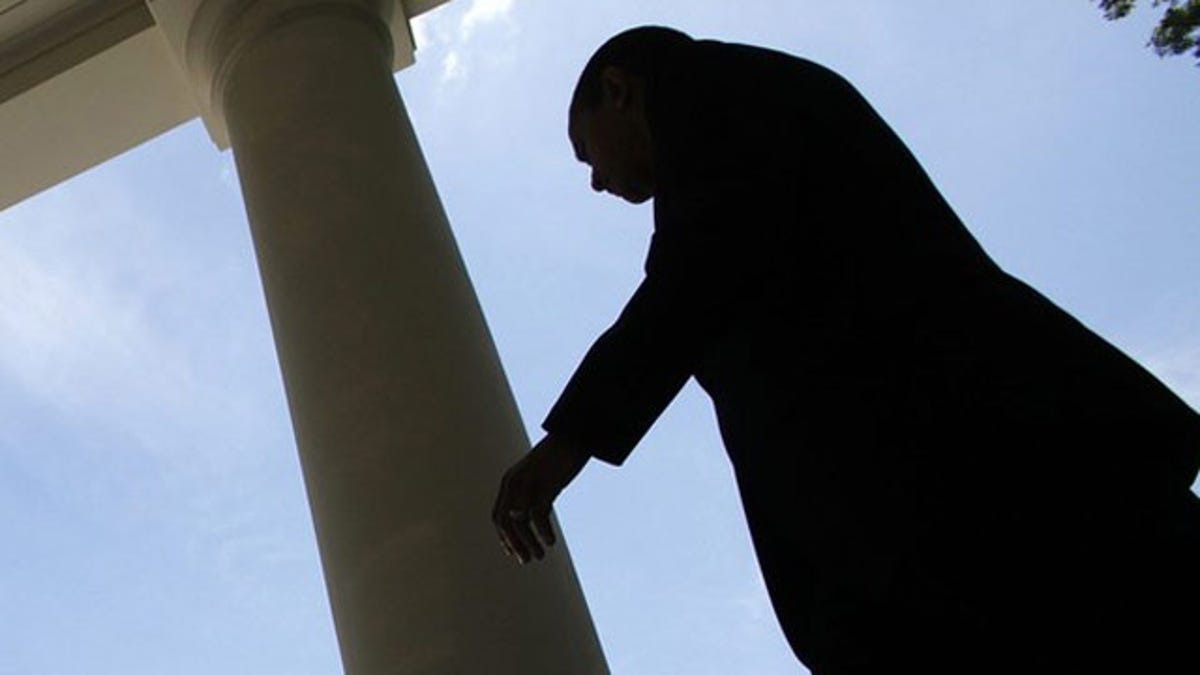
Reuters
There has been a fundamental change in American foreign policy under President Obama-- a change that until now, has been little recognized. One of the core principles of American policy, that has guided presidents of both parties over the past fifty years, has been largely reversed under the current administration.
No longer is the promotion of freedom, liberty, and democracy around the world one of our fundamental principles. Instead, the Obama administration appears to be approaching most situations opportunistically and with a decidedly short-term perspective-- trying to accommodate our adversaries through soothing rhetoric, rather than forcefully advocating our interests, values, and core principles.
In his Inaugural Address, President Obama had started the process of abandoning these core values, saying that he would be willing to cooperate with any nation, even regimes "who cling to power through corruption and deceit and the silencing of dissent," if they were willing to merely "unclench their fist"-- that's apparently all they had to do.
This is dangerous, wrong, and will ultimately serve to undermine American interests around the world. Unfortunately, Obama has continued in this wrong direction. At no point during President Obama's Cairo speech in June did he explicitly say that the United States stands for democracy, freedom, or liberty. Rather, his speech was an implicit repudiation of what has come before.
His message could not have been more direct: "I know there has been controversy about the promotion of democracy in recent years...So let me be clear: No system of government can or should be imposed by one nation by any other."And he has followed through-- in his budget proposal now before Congress he has proposed reducing the amount of aide for democracy promotion in Jordan and Egypt, concentrating 86% of funding for democracy promotion to war-torn Afghanistan, Pakistan, and Iran.
One week later, President Obama refused to so much as comment on the obviously fraudulent Iranian presidential election. As hundreds of thousands of Iranian citizens were in the streets demonstrating for the values that we hold most dear, he publicly issued a statement that "Now, it's not productive, given the history of the U.S.-Iranian relations, to be seen as meddling-- the U.S. President meddling in Iranian elections."
President Obama made it clear that it was neither in our interest nor appropriate to advocate or demand free and fair elections, because doing so would presumably jeopardize future discussions about Iran's nuclear program. What Mr. Obama failed to recognize, however, was that if the United States were to stand behind Opposition candidate Mir-Hossein Mousavi, Iran could conceivably be forced to evolve as a nation and become more open, a society that is more willing to engage in constructive diplomatic relations with the United States, and more likely to dismantle its nuclear program.
And it's not just Iran. President Obama took a similar approach during the recent Strategic and Economic Dialogue with China, held in Washington, D.C. He made no mention of the protests raging in Xinjiang, where Chinese government policies towards the Uighurs and other ethnic minorities have sparked deadly ethnic riots, rather, he said that "support for human rights and human dignity"are "not things that we seek to impose."
Promoting freedom and liberty can and has saved lives. It has produced democratic change in countries as diverse as the Philippines in 1986 and Central and Eastern Europe in the late 1980s and early 1990s. Ronald Reagan was able to negotiate successful arms agreements while working to dismantle the Soviet Union and its control over the nations of Central and Eastern Europe-- demonstrating that the two tasks are not inconsistent.
Failure to press for democratization can cost tens of thousands of lives and promote autocratic rule unnecessarily. I have seen this myself in Serbia, where in 1992, both the incoming Clinton administration and outgoing Bush administration allowed Slobodan Milosevic to stay in power, despite widespread electoral fraud. The result was eight more years of autocratic rule, during which tens of thousands of lives were lost, in events such as the now notorious Srebrenica Massacre, which alone took the lives of 8,000 Bosniaks.
The Clinton administration learned from what happened in 1992 and in 2000, President Clinton made a courageous decision to support a grassroots electoral effort, which finally removed Milosevic from office, and helped integrate the former Yugoslavia into the European community.
Today, with reports of fraud in the Afghanistan elections, and crucial elections coming up in Iraq, and Ukraine, it is especially critical for the Obama administration to reemphasize, in all of its communications and outreach, our core American values of promoting freedom and democracy around the world. This is not just a rhetorical question. Promoting freedom, liberty, and democracy will advance American interests and strengthen ties between America and the rest of the world-- friend and foe alike.
Douglas E. Schoen, is a Democratic strategist and FOX News contributor. He is the author of "Hugo Chavez and the War Against America: The Threat Closer to Home" (Free Press, 2009), has worked on political campaigns in Venezuela over the past thirty years. He also worked with the pro-democracy movement in Serbia between 1992 and 2000.
